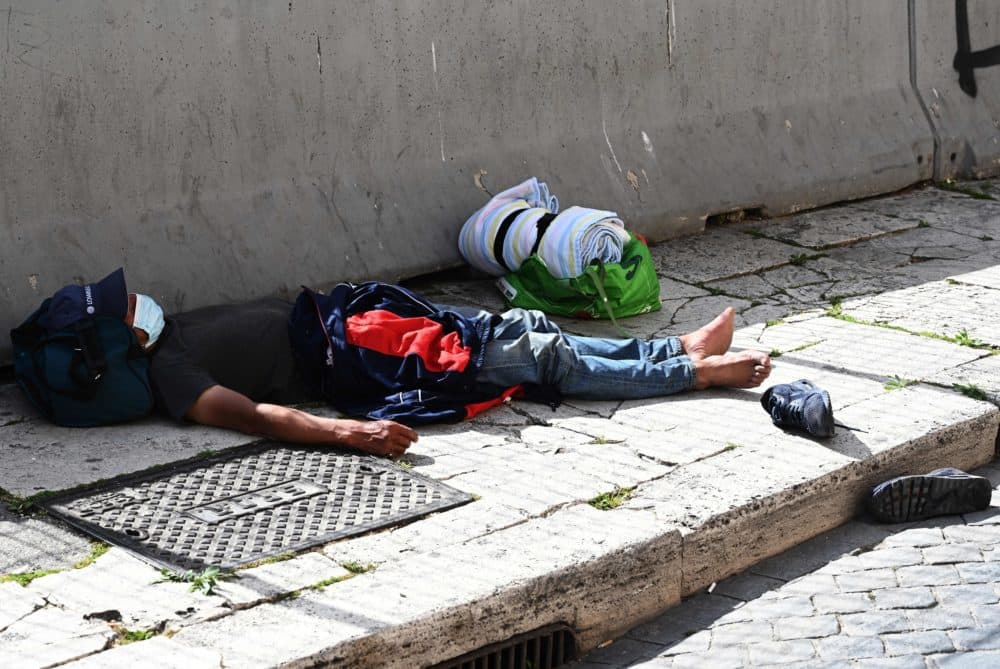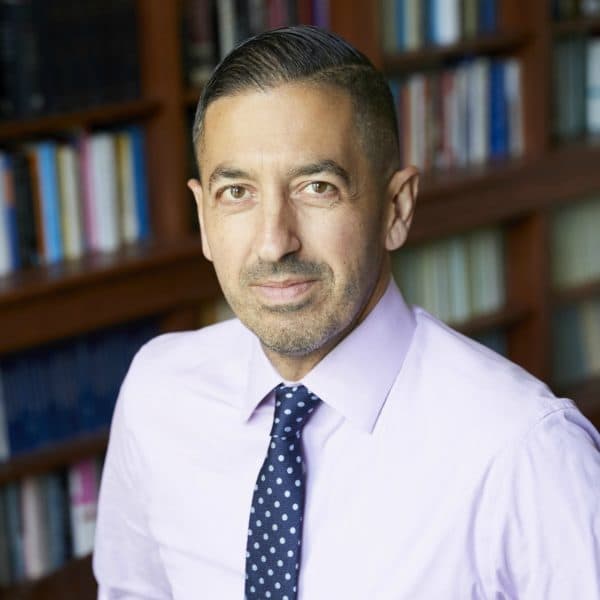Advertisement
Commentary
This pandemic will end. But the next one could be worse

Like many families, mine knows every line of the musical "Hamilton." There is a moment when it seems like the world is crumbling. Hamilton sings, “I’ll write my way out,” expressing his intent to use words to both process the chaotic hurricane passing and also, hopefully, find some deliverance from it.
That moment particularly resonated with me. I have long turned to writing to make sense of challenging events, to try to inform a conversation that helps support a better future. And, in recent years, we have all known what it is to feel like we are in the eye of a storm. The COVID-19 pandemic has been a tempest, turning our world upside down, radically changing how we live. We have all processed the pandemic differently. My way has been to write. During the crisis, I wrote about why we found ourselves in the situation we were in, and what it will take to avoid another, potentially worse, pandemic. Those writings became my new book.
I occasionally encountered the question, from others, or myself: Why write about a pandemic during a pandemic? Is it not enough simply to engage with the difficult, day-to-day work of trying to navigate the moment? Was it solely to “write my way out,” to make sense of what at times seemed senseless, to cope with the grief of the moment?
It is true that I wrote to process, to cope. But I also did so because it seemed like our conversation about COVID-19 was missing something important. For roughly two years, the pandemic was just about all we talked of. We discussed the nature of the virus itself, its effect on our lives, the treatments we hoped could help make a difference, and the vaccines that have done much to return us to some semblance of normalcy. What we have not discussed, however — at least, not as much as we should — are the underlying causes of the pandemic.
It is true that the COVID-19 virus was the precipitating factor for the catastrophe of 2019-2021. But the fundamental cause, I would argue, is deeper than that. It is the fact that in the U.S., people of color live shorter, sicker lives than white people. It is people living in dilapidated, rundown neighborhoods with mold in their walls making them sick.
It is economic inequality that lets some people work remotely in comfortable suburbs during a pandemic, while others must brave daily interactions with crowds at a low-wage job they are terrified of losing. It is disinvestment in a social safety net that could have provided greater support for those in need when COVID-19 struck. It is a culture of division that stopped us from cohering around concern for the common good at a moment of historic crisis. It is the full range of social, economic, environmental and political conditions that created a world that is nowhere near as healthy as it should — and could — be. These conditions created reservoirs of poor health in our society which long predated the pandemic, amounting to a tinderbox in which circumstance dropped the lit match of COVID-19.
Advertisement
But, for all the destruction it caused, the fire of the pandemic was not like a real fire in one key respect. When a real fire takes hold, it eventually burns out the conditions that made it possible. In the case of COVID-19, the conditions that helped the disease become a conflagration are no less poised to burn now than they were in the summer of 2019. The same inequities, injustices and misalignment of our collective priorities remain, waiting for the next spark. When that spark comes — and it will come — there is no guarantee it will not be far worse than what we have just experienced. Addressing the underlying causes of the pandemic, then, is a matter of existential importance. If our conversation about COVID-19 merely scratches the surface — focusing on the virus and its treatments rather than on the conditions that allowed the contagion to take hold — we are putting ourselves in a dangerous position.
I titled my book "The Contagion Next Time" as a tribute to James Baldwin’s "The Fire Next Time." Baldwin’s title warns of a conflagration coming to engulf American society if we do not fully address racial injustice. Like Baldwin’s fire, the next contagion will be precisely as destructive as we allow it to be. We have a choice. We can learn the lessons of the last pandemic in order to prevent the next one or we can neglect the danger we still face, and suffer the worst when it comes.
If we dither, if we forget, if we neglect the hard lessons of the moment, we could face a disaster unlike anything we have seen in our lifetimes.
What does it mean to learn the lessons of the pandemic? We have talked about vaccines, we have talked about therapeutics, we have talked about finding ways to stop viruses from jumping from bats to humans, but we have not talked as much about the structural forces that made COVID-19 what it became. I wanted to express a vision for a world where we have addressed the underlying issues that leave us vulnerable to pandemics, to prevent disease from taking hold. I aspired to help inform a conversation that points our focus towards what matters most for health, so we can address these core factors and do right by this moment, to ensure that the worst is behind us. If we dither, if we forget, if we neglect the hard lessons of the moment, we could face a disaster unlike anything we have seen in our lifetimes.
But we also have the chance to not merely return to something like the pre-pandemic status quo, but to build a world that is better, by far, than the one that first faced a novel coronavirus in 2019. If we engage with what matters most for health, if we invest in improving the structural drivers of health and disease, we can get to a world that is unrecognizable in the best of ways.
